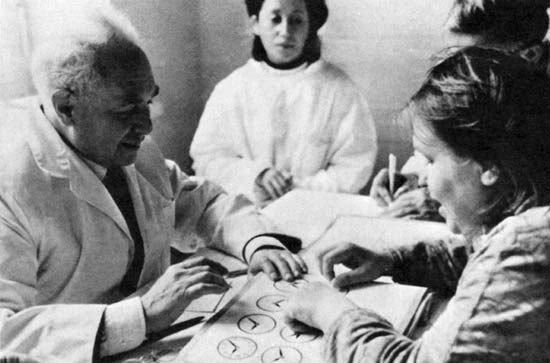IQ continues to increase globally (if unevenly), and it’s not only in developing nations playing catch-up (China, for a huge example) but also in long-developed ones (the U.S., that other ginormous example). Why is that? Better tools and an improved understanding of tests? Perhaps, but the man who gave the Flynn effect its name believes abstract thinking is at the heart of the steady incline. Does that mean, as I’ve always suspected, that video games are good for us? From William Kremer at the BBC:
James Flynn believes test wiseness may have been a factor in IQ gains in the US in the first half of the 20th Century. However, since then the amount of IQ testing taking place has waned – and IQ increases have remained steady.
Flynn puts this continued progress down to profound shifts in society as well as education over the last century, which have led people to think in a more abstract, scientific way – the kind of intelligence measured by IQ tests.
He cites the work of Russian neuroscientist Alexander Luria, who studied indigenous people in the Soviet Union. “He found that they were very pragmatic and concrete in their thinking,” says Flynn, “and they weren’t capable of using logical abstractions or taking hypotheticals seriously.” Luria put the following problem to the head man of one tribe in Siberia: Where there’s always snow, the bears are white; there’s always snow at the North Pole – what colour are the bears there?
The head man replied that he had never seen bears that were any colour other than brown, but if a wise or truthful man came from the North Pole and told him that bears there were white, he might believe him. The scientific methods of hypothesising, classifying and making logical deductions were alien to him.
“Now virtually all formal schooling, when you get past the sixth grade into high school and college, means that you take hypotheses seriously,” says Flynn. “This is what science is all about. And you’re using logic on abstract categories.”
And this kind of thinking doesn’t only occur in school.•



